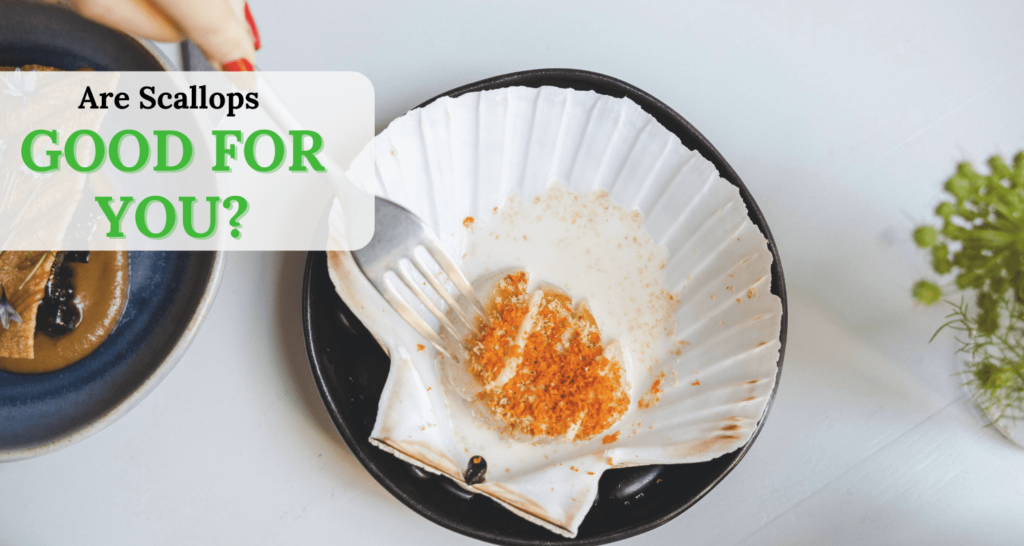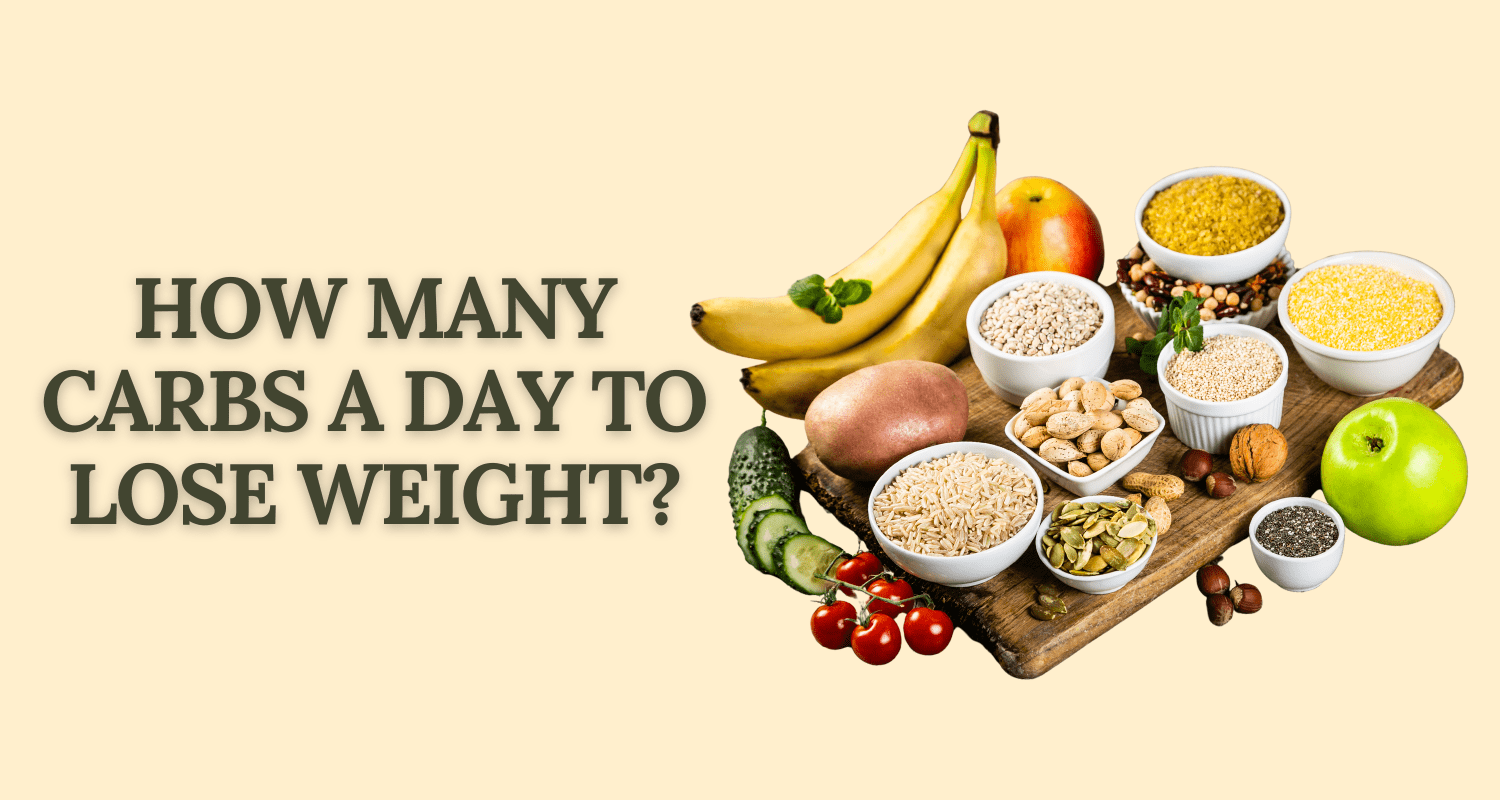Did you know that scallops, those delectable shellfish delicacies, are not only delicious but also packed with essential nutrients that can benefit your overall health?
Whether you’re a seafood enthusiast or looking to incorporate more nutritious options into your diet, scallops offer an array of health benefits that might surprise you.
In this article, we will explore the question: are scallops good for you? Will also discover the nutritional benefits of scallops, delve into their impressive nutritional profile, discuss their positive impact on heart health, and even provide you with scrumptious scallop recipes.
Discover why adding these succulent gems to your menu can be a smart and tasty choice for your well-being.
Let’s explore: Are scallops good for you?
Key Takeaways:
- Are scallops good for you? Yes, scallops are an excellent source of protein, omega-3 fatty acids, and essential vitamins and minerals.
- Their high protein content can support muscle growth and repair.
- The omega-3 fatty acids in scallops are beneficial for heart health and brain function.
- Scallops are a good source of vitamin B12 and selenium, which are vital for various bodily functions.
- By opting for sustainable scallop farming practices, you can enjoy this seafood delicacy while contributing to a healthier planet.
Nutritional Profile of Scallops
Scallops are not only a delicious seafood option, but they also offer an impressive nutritional profile that can contribute to your overall health and well-being.
These delectable mollusks are rich in essential vitamins and minerals, making them a valuable addition to a balanced diet.
Vitamins in Scallops
Scallops are packed with vitamins that play crucial roles in supporting various bodily functions.
They are particularly abundant in vitamin B12, which is essential for maintaining nerve health and producing red blood cells.
Additionally, scallops provide a good source of vitamin A, which is vital for healthy vision and immune function.
Minerals in Scallops
Scallops are also a valuable source of essential minerals.
They contain high levels of selenium, a powerful antioxidant that supports immune function and fights against oxidative stress.
Furthermore, scallops are rich in phosphorus, which is necessary for healthy bones and teeth, as well as zinc, a mineral that aids in immune system functioning and wound healing.
By incorporating scallops into your meals, you can enjoy their flavorful taste while reaping the benefits of their impressive nutritional composition.
Whether pan-seared, grilled, or added to a refreshing seafood salad, scallops offer a delectable way to enhance your diet with valuable vitamins and minerals.
Health Benefits of Scallops
Scallops offer a range of health benefits that make them a valuable addition to your diet.
Not only are they delicious, but they also promote heart health and support brain function.
Here are the following benefits listed to make you understand why you should eat scallops.
Heart Health
Scallops are an excellent source of omega-3 fatty acids, which have been shown to reduce the risk of heart disease.
These healthy fats can help lower blood pressure, reduce inflammation, and improve overall cardiovascular health.
Brain Health
The omega-3 fatty acids found in scallops are also essential for maintaining optimal brain function.
These fats support the growth and development of brain cells and can enhance cognitive performance, including memory and concentration.
Other Health Benefits of Scallops
- Rich in protein: Scallops are a great source of high-quality protein, which is vital for muscle growth and repair.
- Packed with vitamins and minerals: Scallops contain important vitamins and minerals such as B12, magnesium, and zinc, which play crucial roles in maintaining overall health.
- Low in calories: Scallops are a low-calorie food, making them a healthy choice for those looking to manage their weight.
Incorporating scallops into your diet can provide you with these incredible health benefits while satisfying your taste buds.
So why not explore various nutritional value of scallops with recipes and enjoy their nutritional advantages?
Fresh vs Frozen Scallops: Which is Better?
When it comes to enjoying scallops, one decision that often comes up is whether to opt for fresh or frozen scallops.
Both options have their merits, but understanding the differences can help you make an informed choice.
Additionally, knowing the best way to cook scallops can ensure you maximize their flavor and nutritional value.
Fresh Scallops
Fresh scallops are known for their delicate texture and exquisite flavor.
They are harvested directly from the sea, making them a popular choice for seafood enthusiasts.
The key advantage of fresh scallops is their unmatched freshness and the ability to savor the natural taste of the sea.
- Look for scallops that have a slightly sweet smell and are firm to the touch.
- If possible, buy fresh scallops from a trusted seafood market or fishmonger.
- When cooking fresh scallops, it’s best to keep the preparation simple to let their natural flavors shine.
Frozen Scallops
Frozen scallops offer convenience and can be a great option when fresh scallops are not readily available.
They are typically harvested and quickly frozen to preserve their quality.
Freezing scallops can help maintain their freshness and flavor for a longer time, making them a convenient choice for home cooks.
- Choose individually quick-frozen (IQF) scallops to ensure they are frozen individually, making it easier to thaw only what you need.
- Thaw frozen scallops overnight in the refrigerator or use the defrost function on your microwave.
- Once thawed, pat the scallops dry before cooking to enhance their texture.
Both fresh and frozen scallops can be delicious when cooked properly.
The best way to cook scallops is to sear them quickly in a hot pan to achieve a golden brown crust while keeping the interior tender and juicy.
Season with salt, pepper, and your favorite herbs or spices to enhance the flavor.
Whether you choose fresh or frozen scallops, what matters most is the quality and freshness of the seafood.
Both options allow you to enjoy the unique taste of scallops in your favorite dishes.
So, go ahead and savor the delectable flavors of scallops cooked to perfection!
Sustainable Scallop Farming Practices
When it comes to seafood choices, opting for sustainable options is crucial for the health of our oceans and marine ecosystems.
Sustainable scallop farming practices offer an eco-friendly solution that supports responsible seafood consumption.
Unlike traditional fishing methods that can damage marine habitats and deplete scallop populations, sustainable scallop farming involves cultivating scallops in carefully managed environments.
These farms promote the growth of scallops while minimizing the impact on the surrounding ecosystem.
One of the key principles of sustainable scallop farming is ensuring the responsible use of resources.
This includes monitoring and regulating water quality, controlling feed inputs, and implementing proper waste management systems to minimize pollution.
Additionally, sustainable scallop farms prioritize the health and well-being of the scallops themselves.
Specialized feeding programs, regular monitoring, and veterinary care help maintain optimal conditions for scallop growth while minimizing stress and disease.
The Benefits of Sustainable Scallop Farming:
- Conservation of Scallop Populations: By carefully managing scallop farming practices, sustainable farms help conserve scallop populations and prevent overfishing.
- Reduction of Environmental Impact: Sustainable farming methods minimize the impact on marine habitats, ensuring the preservation of biodiversity and ecosystem health.
- Promotion of Local Economies: Sustainable scallop farming provides economic opportunities for coastal communities and supports local fishing industries.
- Traceable and Transparent Supply Chains: Sustainable scallop farms prioritize traceability, allowing consumers to make informed choices about the seafood they consume.
Choosing sustainably farmed scallops is not only a responsible choice for the environment but also a way to enjoy delicious seafood while supporting the well-being of our oceans.
By selecting eco-friendly seafood choices like sustainable scallop farming, we can contribute to the long-term health and sustainability of our marine ecosystems.
Delicious Scallop Dish Ideas and Recipes
Scallops are incredibly versatile and can be enjoyed in a variety of delicious ways.
Whether you prefer a simple and light preparation or a more elaborate dish, there are numerous ways to cook scallops that will satisfy your taste buds.
Here, we have curated some of the best scallop recipes and scallop dish ideas to inspire your culinary adventures.
Pan-Seared Scallops with Lemon Butter Sauce
Ingredients:
- 1 lb scallops, patted dry
- Salt and pepper, to taste
- 2 tbsp olive oil
- 2 tbsp butter
- 2 cloves garlic, minced
- 1/4 cup chicken or vegetable broth
- Juice of 1 lemon
- Zest of 1 lemon
- 2 tbsp chopped fresh parsley
Instructions:
- Season the scallops with salt and pepper on both sides.
- Heat olive oil in a skillet over high heat.
- Add the scallops to the skillet and cook for 2-3 minutes on each side until they develop a golden crust.
- Remove the scallops from the skillet and set aside.
- In the same skillet, melt butter and add minced garlic. Cook for 1 minute until fragrant.
- Add chicken or vegetable broth, lemon juice, and lemon zest to the skillet. Cook for 2-3 minutes until the sauce slightly thickens.
- Return the scallops to the skillet and coat them in the lemon butter sauce.
- Sprinkle with chopped fresh parsley before serving.
- Serve the pan-seared scallops with lemon butter sauce hot with your favorite vegetables or mashed potatoes. Enjoy!
Grilled Scallop Skewers with Herb Marinade
- 1 pound of fresh scallops
- Wooden skewers, soaked in water for at least 30 minutes
- 2 tablespoons of olive oil
- 2 cloves of garlic, minced
- 1 tablespoon of fresh lemon juice
- 1 teaspoon of fresh thyme, chopped
- 1 teaspoon of fresh rosemary, chopped
- Salt and pepper to taste
Instructions:
- In a small bowl, mix together the olive oil, garlic, lemon juice, thyme, rosemary, salt, and pepper to create the herb marinade.
- Thread the scallops onto the soaked wooden skewers, leaving a small space between each scallop.
- Brush the herb marinade onto the scallops, ensuring they are evenly coated on all sides.
- Preheat the grill to medium-high heat and lightly oil the grates to prevent sticking.
- Place the skewers on the grill and cook for 2-3 minutes per side, or until the scallops are opaque and slightly charred.
- Remove the skewers from the grill and let them rest for a few minutes before serving.
- Serve the grilled scallop skewers as desired, garnished with additional fresh herbs if desired.
Scallop and Bacon Pasta
Ingredients:
- 8 oz pasta of your choice
- 1 lb sea scallops
- 6 slices of bacon, chopped
- 2 cloves of garlic, minced
- 1 cup heavy cream
- 1/2 cup grated Parmesan cheese
- Salt and pepper to taste
- Fresh parsley for garnish
Instructions:
- Cook the pasta according to package instructions until al dente. Drain and set aside.
- In a large skillet, cook the chopped bacon over medium heat until crispy. Remove the bacon from the skillet and set aside.
- Season the scallops with salt and pepper. In the same skillet with the bacon drippings, sear the scallops for 2-3 minutes on each side until golden brown. Remove the scallops from the skillet and set aside.
- In the same skillet, add minced garlic and sauté for about 1 minute until fragrant.
- Pour in the heavy cream and bring to a simmer. Stir in the grated Parmesan cheese until melted and the sauce has thickened.
- Add the cooked pasta, crispy bacon, and seared scallops to the skillet. Toss everything together until well combined and heated through.
- Season with additional salt and pepper to taste.
- Serve the scallop and bacon pasta hot, garnished with fresh parsley and extra Parmesan cheese.
Scallop Ceviche with Citrus and Avocado
- 1 lb fresh scallops, thinly sliced
- 1/2 cup fresh lime juice
- 1/4 cup fresh lemon juice
- 1/4 cup fresh orange juice
- 1 avocado, diced
- 1/2 red onion, finely chopped
- 1/4 cup chopped fresh cilantro
- Salt and pepper to taste
- Tortilla chips or lettuce for serving
Instructions:
- In a large bowl, combine the scallops, lime juice, lemon juice, and orange juice. Make sure the scallops are fully submerged in the citrus juice. Cover and refrigerate for at least 30 minutes to allow the scallops to “cook” in the acid.
- After 30 minutes, drain the citrus juice from the scallops and discard.
- Add the diced avocado, red onion, and cilantro to the scallops. Gently toss to combine.
- Season with salt and pepper to taste.
- Serve the scallop ceviche on a bed of lettuce or with crispy tortilla chips. Enjoy!
These are just a few of the many ways to cook scallops and incorporate them into your meals.
Whether you prefer them seared, grilled, or raw, scallops offer a delightful dining experience with their delicate texture and subtle flavor.
Get creative in the kitchen and explore the countless possibilities to elevate your culinary skills with these delectable sea treasures.
Conclusion
In conclusion, Are scallops good for you? Yes, incorporating scallops into your diet can bring a plethora of benefits to your overall well-being.
These delectable seafood delicacies are not only delicious but also packed with essential nutrients that can support your health.
Scallops are an excellent source of protein, low in fat, and rich in vitamins and minerals.
They provide a significant amount of vitamin B12, which is essential for brain function and plays a crucial role in supporting a healthy nervous system.
Additionally, scallops are a good source of magnesium, potassium, and zinc, which are important for maintaining proper heart health and aiding in overall muscle function.
Furthermore, are scallops good for you, the omega-3 fatty acids found in scallops offer numerous benefits, including reducing inflammation, supporting brain health, and promoting optimal heart function.
Research suggests that incorporating omega-3-rich foods like scallops into your diet may also have a positive impact on cognitive function and may help lower the risk of heart disease.
In summary, scallops are not only a tasty addition to your menu but also a nutritious choice.
Their impressive nutritional profile, coupled with their health benefits, makes them a great option for individuals looking to improve their well-being.
So, why not go ahead and savor the distinct flavor and nourishing qualities of scallops as part of your balanced diet?
FAQs
Are scallops good for you?
Yes, scallops are a good source of protein, low in calories, and rich in nutrients like vitamin B12 and omega-3 fatty acids, making them a healthy addition to your diet.
How often should you eat scallops?
It’s recommended to consume scallops in moderation as part of a balanced diet, typically a few times per week, to avoid overconsumption of seafood and maintain variety in nutrient intake.
Which is healthier, scallops or shrimp?
Both scallops and shrimp are nutritious seafood choices, but scallops are lower in cholesterol and calories compared to shrimp, making them a slightly healthier option.
Are scallops as healthy as fish?
While scallops offer many health benefits, they may not be as high in omega-3 fatty acids as some types of fatty fish like salmon or mackerel. However, they still provide valuable nutrients and can be part of a healthy diet.
Is scallop better than salmon?
Scallops and salmon offer different nutritional profiles. Salmon is higher in omega-3 fatty acids, while scallops are lower in calories and cholesterol. Both can be healthy choices depending on your dietary needs and preferences.
Why are scallops so expensive?
Scallops can be expensive due to factors like their limited availability, labor-intensive harvesting process, and high demand in the culinary world, especially for premium-quality scallops.
Is it OK to eat scallops every day?
While scallops are nutritious, it’s advisable to consume a variety of foods in your diet for balanced nutrition. Eating scallops every day may lead to overconsumption of certain nutrients or potential exposure to contaminants in seafood.
Disclaimer: This content, including advice, provides generic information only. It is not a substitute for a qualified medical opinion. Always consult a specialist or your doctor for more information. Nutrition Cult does not claim responsibility for this information.




